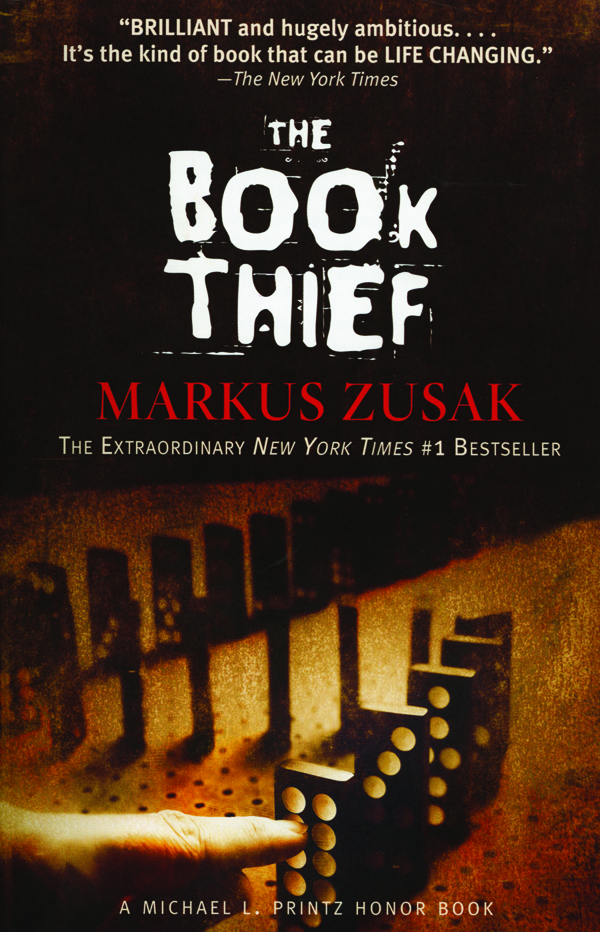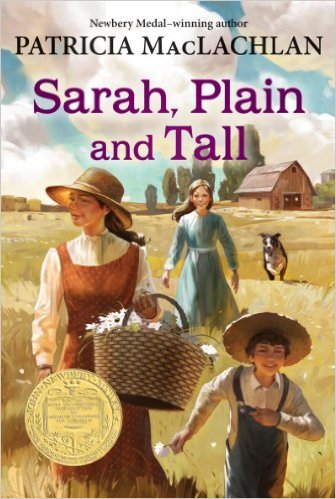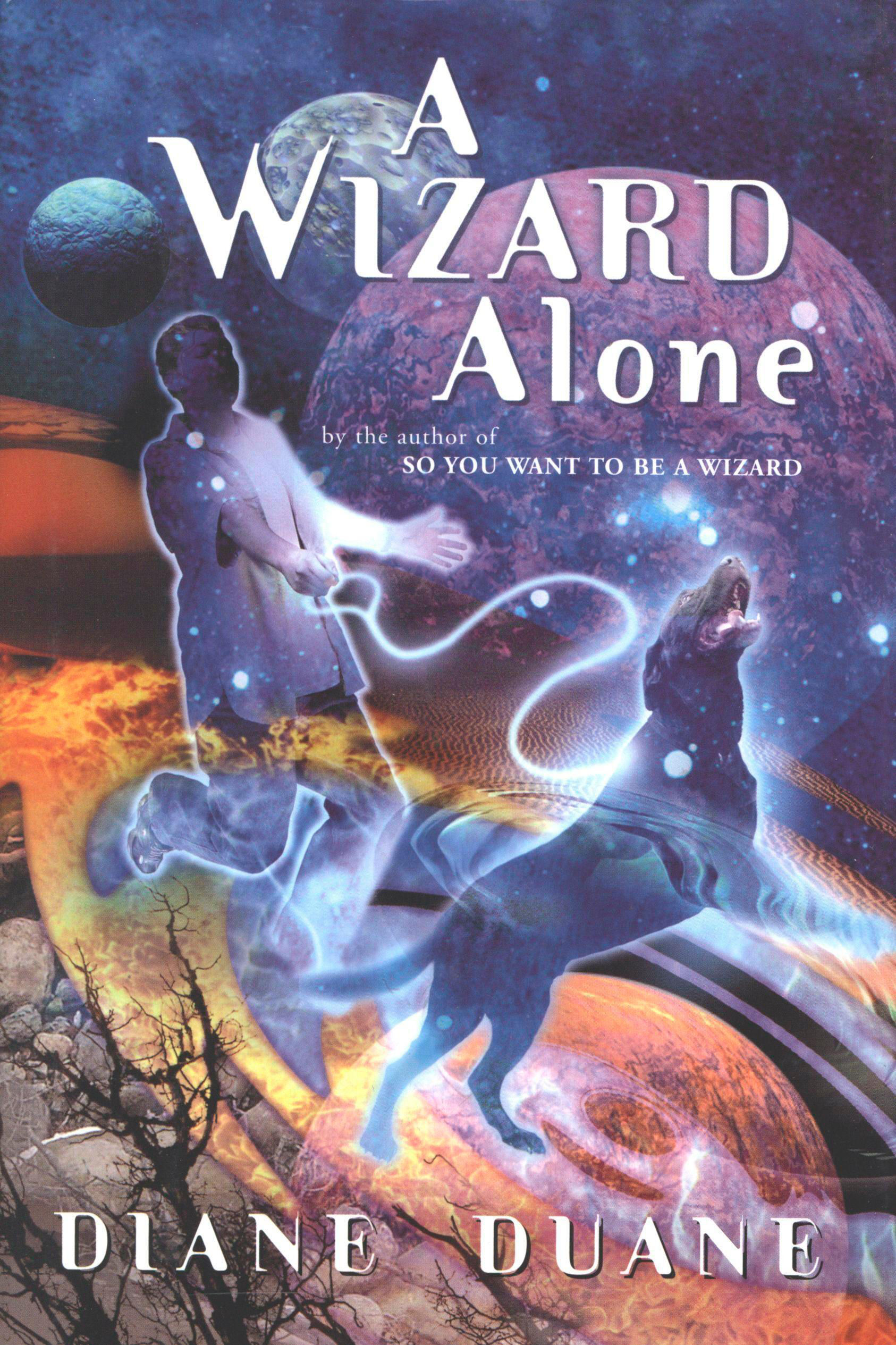As of this writing the last book in the alphabetical list (by author, then title) of books I have reviewed, this multiple-award winning, longtime international bestseller hardly needs boosting from me. I, rather, needed a boost while listening to the public library’s copy of the audio-book read by Alan Corduner. My throat got choked up and my eyes blurred with tears, a dangerous condition on the kinds of roads I drive daily. Right after reading it I got choked up again watching the 2013 movie adaptation featuring Geoffrey Rush, Emily (not Emma) Watson, and the music of John Williams.
The story is narrated by Death, for starters.
For the main course, it takes place in Nazi Germany during World War II, when a girl named Liesel Meminger learned to love everybody in her low-income neighborhood before losing them in an air raid.
Don’t worry. I’m not actually spoiling anything, because Death does that. But while you know the outline of what’s coming, the tragedy still drops on you like a bomb. A foreseeable, inevitable, but devastating explosion of grief and loss.
Also, in the midst of one of the ugliest chapters in modern civilization, it provides a moving depiction of courage, humanity, and for lack of a better word, love.
Liesel comes into the Huberman family as a foster child when her mother, implicated in a purge against Communists, has to go away. On the train ride to the Munich suburb where the Hubermans live, she witnesses the death of her six-year-old brother, a trauma that haunts her nightmares for years. She also happens to pick up, out of the snow, a mislaid book called The Grave Digger’s Handbook. It proves to be the beginning of a career in book stealing made all the more remarkable by the fact that, at first, she cannot read.
Hans Huberman, or Papa, turns out to be a kind, gentle man who paints houses and plays the accordion. Rosa, or Mama, is a short, wardrobe-shaped woman with a sharp temper and a sharper tongue. Liesel finds healing in the glow of their love, aided by the cheerful antics of the yellow-haired boy next door.
Somehow the family manages to save a young Jewish man from the Holocaust without suffering a tragedy of the Anne Frank variety. But as the tide of war slowly turns against Germany, life on Himmel Street becomes increasingly perilous. Bomb scares, trouble with the Nazi party, and a string of petty crimes mingle with such joys as children’s sports, young love and the pleasure of reading. In the end, it all seems to illustrate the fragility of life and the endurance of love.
Zusak is also the author of The Messenger, a.k.a. I Am the Messenger, which I have read; and of the trilogy The Underdog, Fighting Ruben Wolfe and Getting the Girl, which I have not read. Evidently a writer who never takes a word for granted or writes a thoughtless sentence, he has a knack for describing things in vivid new ways. The effect is a quirky style that seems both clear and strange at once, so when he fires an emotional missile it goes straight through your heart.



